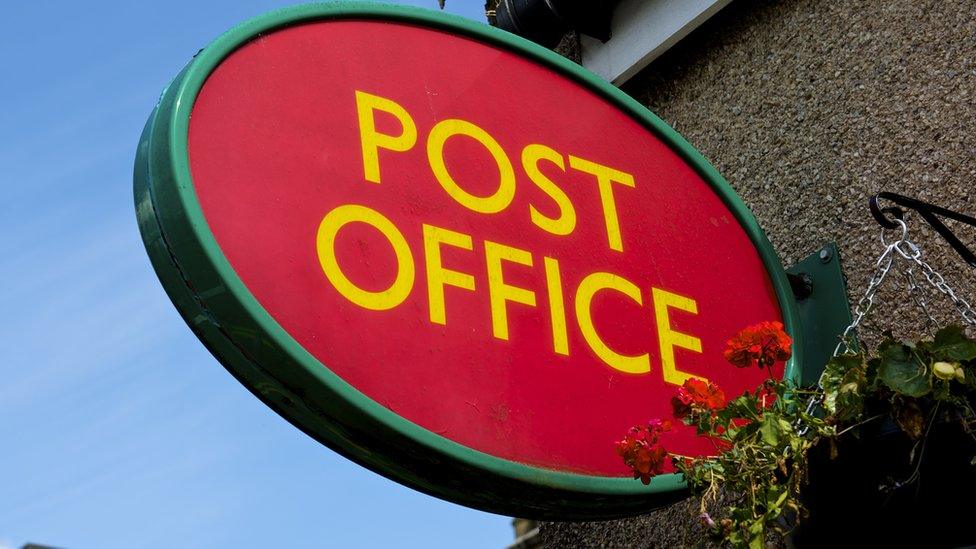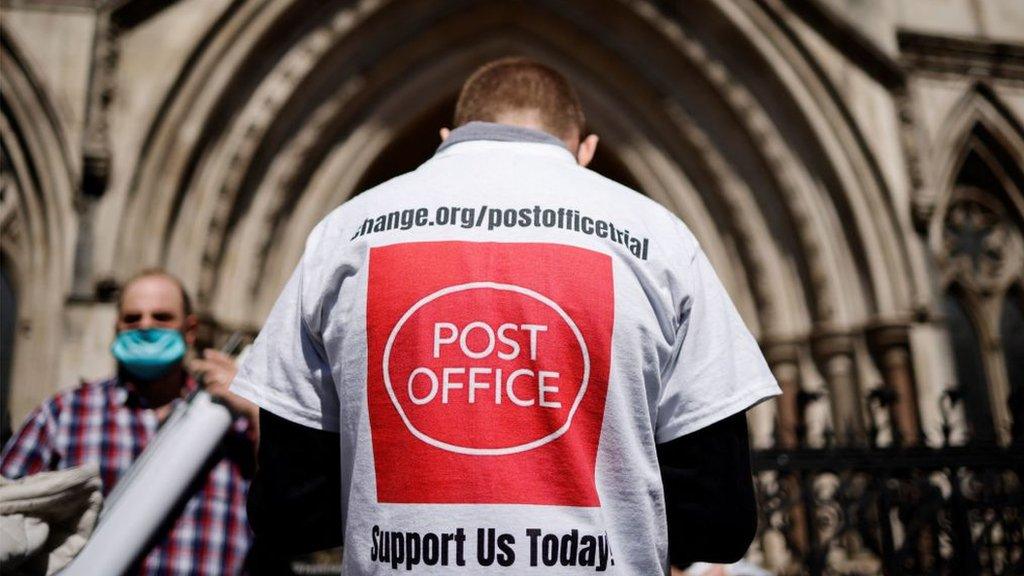Post Office scandal: Former minister calls for mass appeal against convictions
- Published
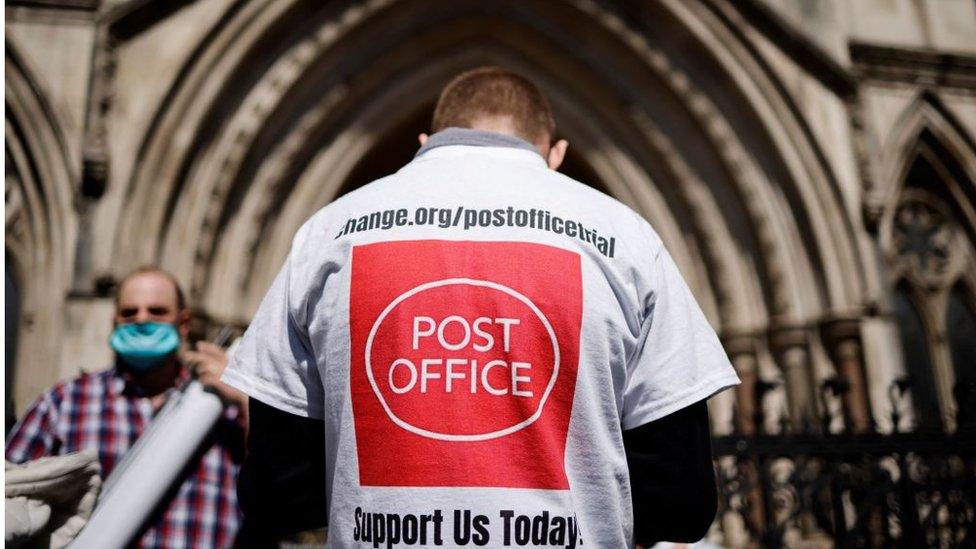
Hundreds of sub-postmasters convicted in the Post Office Horizon scandal should be able to submit a mass appeal, a former cabinet minister has said.
Sir David Davis, who is seeking to question ministers about the issue, told the BBC there was "no real reason" why there could not be a "mass case".
Labour leader Sir Keir Starmer has also said all cases need to be revisited.
It comes as ministers met on Monday to consider ways of clearing the names of hundreds of sub-postmasters.
Between 1999 and 2015, more than 700 Post Office branch managers were convicted of false accounting, theft and fraud based on the faulty Horizon software.
Some sub-postmasters wrongfully went to prison, many were financially ruined. Some have since died.
It has been described as the most widespread miscarriage of justice in British history, but to date only 93 convictions have been overturned and of them, just 30 people have agreed "full and final" compensation settlements, meaning many victims are still fighting to clear their names.
Some 54 cases have resulted in either a conviction being upheld, people being refused permission to appeal, or the person appealing having withdrawn from the process.
While the scandal has been public knowledge for some time with a public inquiry ongoing, an ITV drama - Mr Bates vs The Post Office - which aired last week has thrust the issue back into the spotlight.
Speaking to the BBC, Sir David said the drama had galvanised the response to the scandal. "There are now tens of millions of people who care about this - care a lot," he said. "They're furious in many cases."
At present, all cases are considered individually, but Sir David said: "All of the cases depend on one single lie, and that is nobody but the postmasters and mistresses could access their computers. We now know that to be untrue. I see no real reason, no logical reason you can't have a mass case, mass appeal on that basis."
Sir David and Labour MP Kevan Jones are among those hoping to scrutinise a minister in the House of Commons, which is reassembling on Monday for the first time since the Christmas recess.
Sir Keir Starmer, a former Director of Public Prosecutions, has said that all convictions need to be looked at again, and prosecution powers should be taken away from the Post Office.
Sir Keir said: "I used to run the Crown Prosecution Service, we've prosecuted for other departments, we can do it here - that should be done straightaway.
"And these convictions, the remaining convictions need to be looked at en masse."
The Post Office, which is wholly owned by the government, acted as the prosecutor when it brought the cases against its sub-postmasters. It has the power in England and Wales to do so, and its appointed lawyers presented the evidence in court.
The situation is different in Scotland and in Northern Ireland.
Prime Minister Rishi Sunak has said the government is reviewing options, including stripping the Post Office of its role in the appeal process, and is also looking at how to speed up the compensation process, amid concerns it has been far too slow.
On Monday, a petition calling for the former Post Office chief executive, Paula Vennells, to lose her CBE over the scandal passed more than one million signatures.
The prime minister's spokesman said Mr Sunak would "strongly support" the Honours Forfeiture Committee if it decided to look at revoking Ms Vennells' CBE.
Tracy Felstead and Janet Skinner, sub-postmistresses who were both jailed in connection with the scandal, told the BBC Ms Vennells should relinquish her CBE.
"To be fair, and if she had any decency she would just hand it back," Ms Skinner said.
Ms Vennells has said previously that she remains "truly sorry for the suffering caused to wrongly prosecuted sub-postmasters and their families".
She said: "I continue to fully support and focus on co-operating with the [public] inquiry and it would be inappropriate for me to comment further while it remains ongoing."
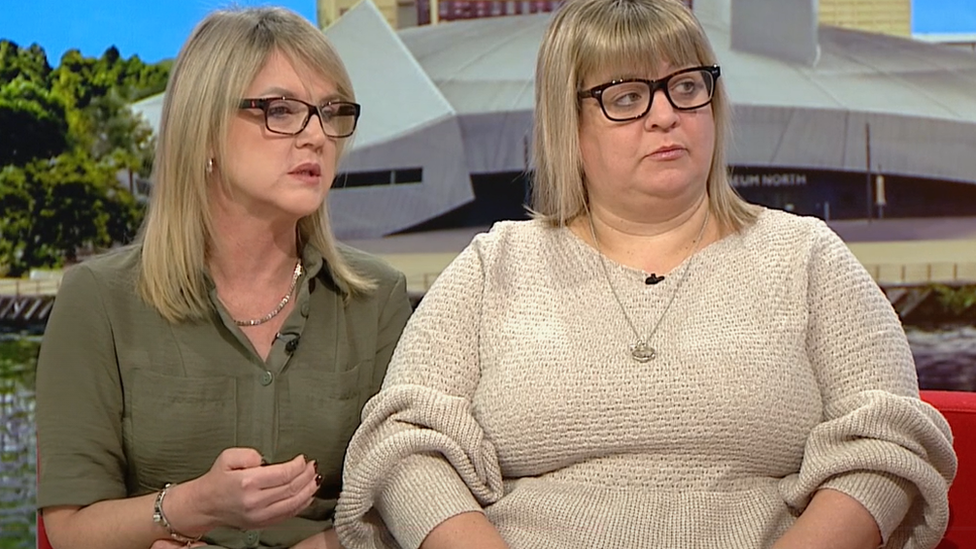
Janet Skinner (left) and Tracy Felstead (right) were both victims of the scandal
Ms Felstead also said she would like to see "someone held accountable".
"We were classed as criminals by the Post Office," she said. "Now it is their turn to be investigated and find out who knew what, why and when this all happened."
The Metropolitan Police is now investigating the Post Office over potential fraud offences arising from the prosecutions.
The advisory board overseeing compensation for victims also renewed a call on Monday for all Post Office staff wrongly accused of theft and false accounting to have their convictions overturned.
Its chairman, Prof Chris Hodges, told the BBC: "We've come to the conclusion that the obvious thing to do is the right thing to do, which is for parliament to pass a very simple act, overturning all of them."
He argued that overturning all convictions would not encroach upon the independence of the judiciary
"This is not a situation in which anyone would complain that the government is breaching anyone's human rights," said Prof Hodges.
He added that he would be "very surprised" if the judiciary "weren't as angry and indeed embarrassed about the situation as we all are, so I don't think that there is a constitutional issue".
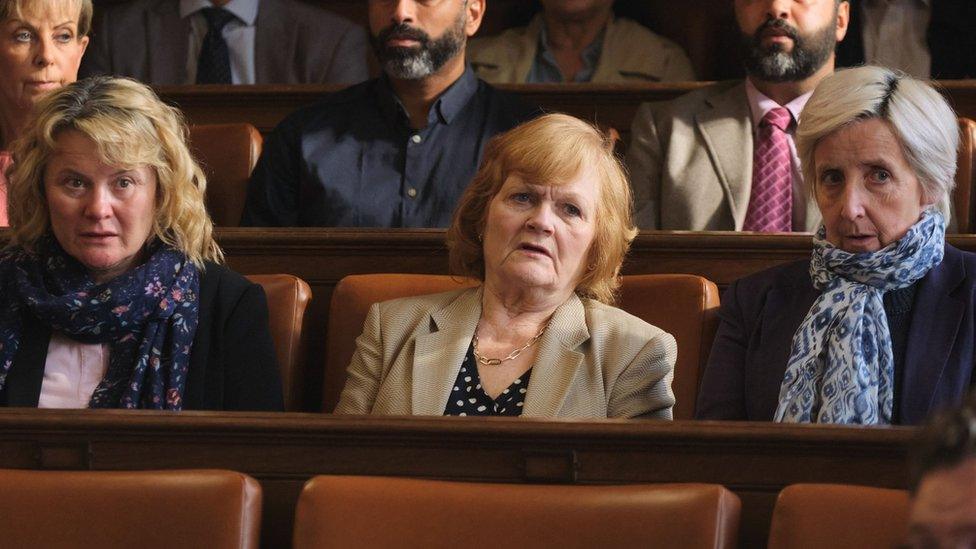
ITV's drama has thrown the Post Office scandal back into the spotlight
Last month, Prof Hodges said that while "a small minority" were "doubtless genuinely guilty of something", it would be "worth acquitting a few guilty people (who have already been punished) in order to deliver justice to the majority".
However, former sub-postmistress Ms Felstead told the BBC that while the process of helping former sub-postmasters needed to be sped up, she cautioned against a mass exoneration.
"I think we need to be really careful that we're not just going to go and turn everybody's convictions over, just in case you have that one person that has committed a crime and you've just turned over their conviction," she said.
A Post Office spokesperson has previously said it shares the "aims of the public inquiry to get to the truth of what went wrong in the past and establish accountability".

BBC iPlayer - Panorama - The Post Office Scandal
This Panorama special tells the story of those whose lives were utterly devastated, reveals the damning evidence that was kept from them and investigates how and why the Post Office, a multinational tech company and the government covered up the truth for so long. (UK only)

Have you been affected by the Post Office scandal? Get in touch by emailing haveyoursay@bbc.co.uk, external.
Please include a contact number if you are willing to speak to a BBC journalist. You can also get in touch in the following ways:
WhatsApp: +44 7756 165803
Tweet: @BBC_HaveYourSay, external
Please read our terms & conditions and privacy policy
If you are reading this page and can't see the form you will need to visit the mobile version of the BBC website to submit your question or comment or you can email us at HaveYourSay@bbc.co.uk, external. Please include your name, age and location with any submission.
Related topics
- Published8 January 2024
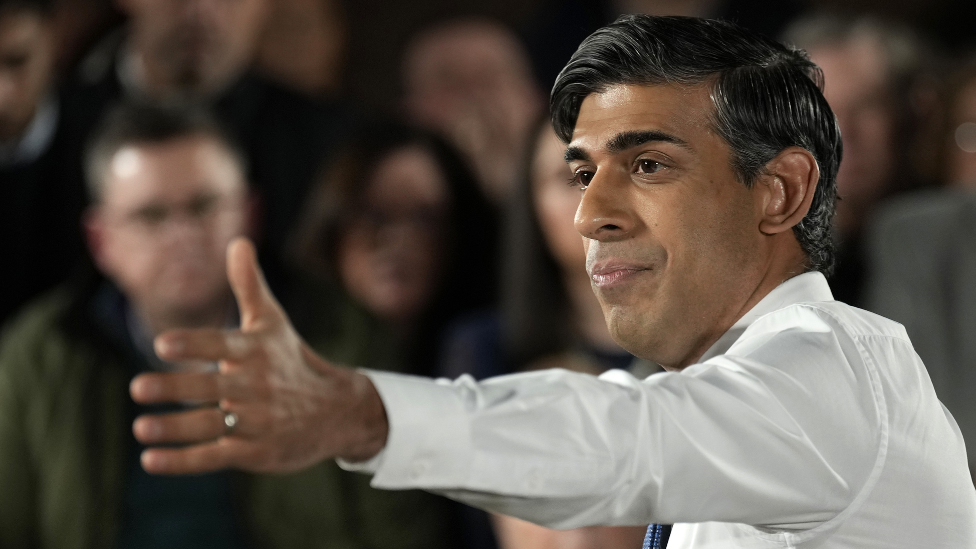
- Published7 January 2024
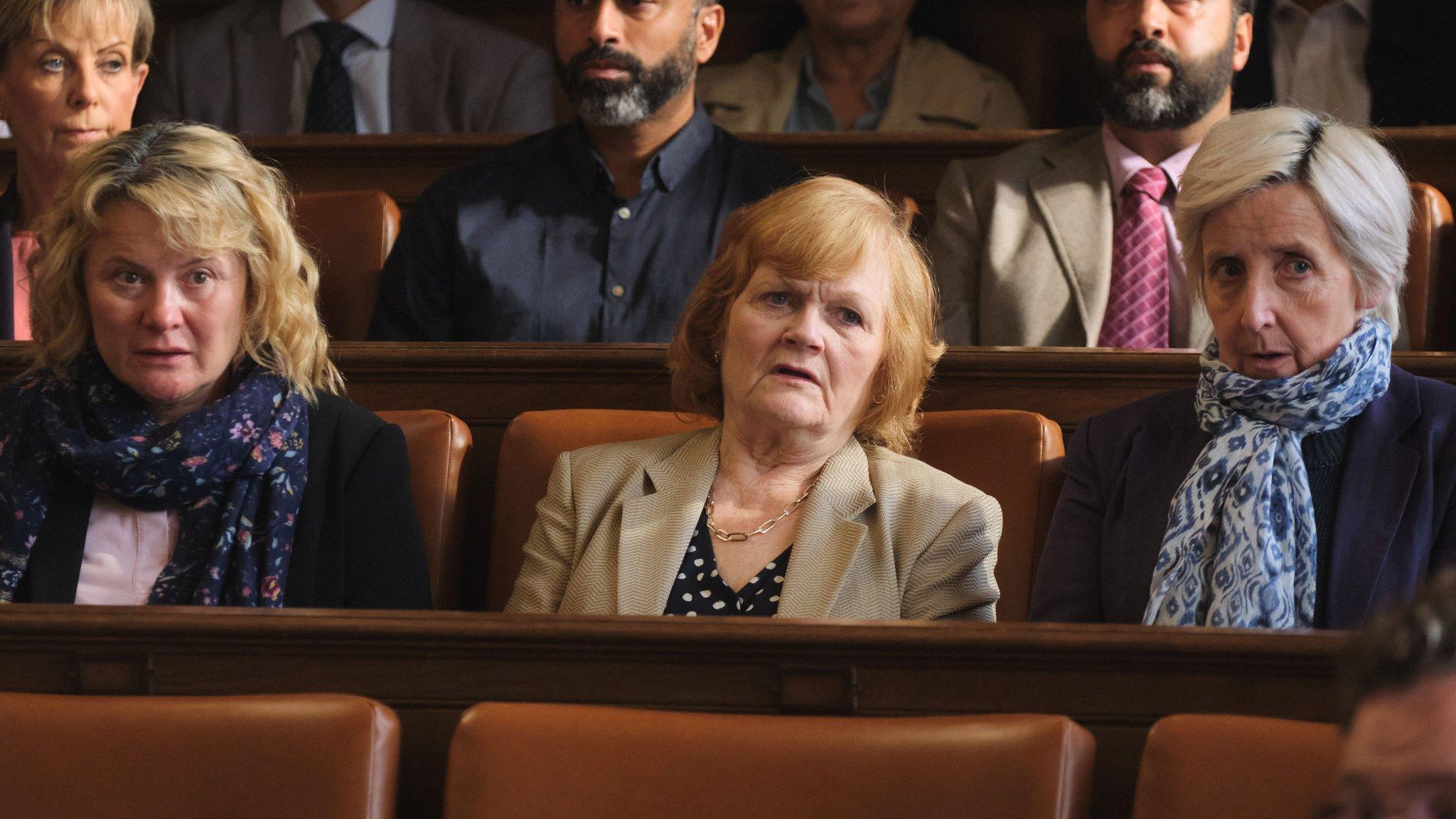
- Published6 January 2024
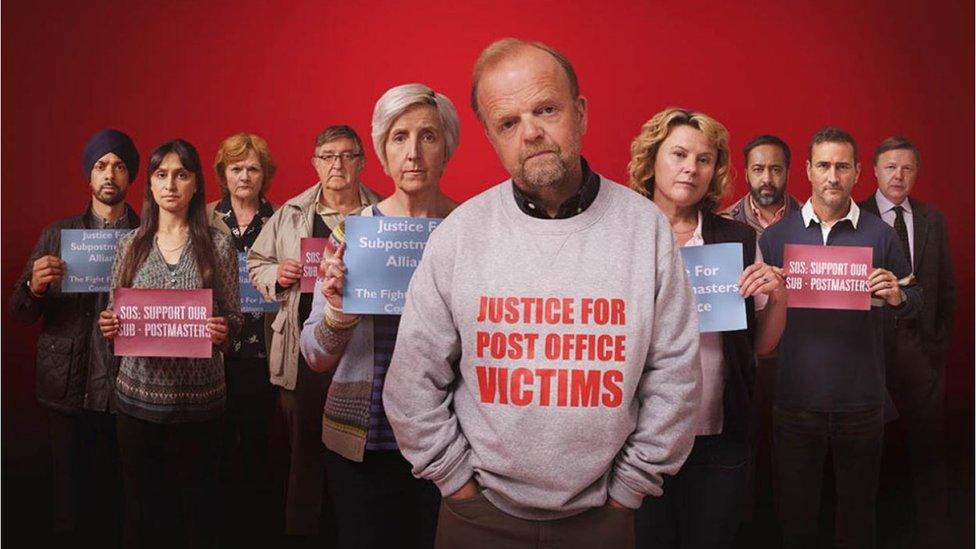
- Published21 December 2023
